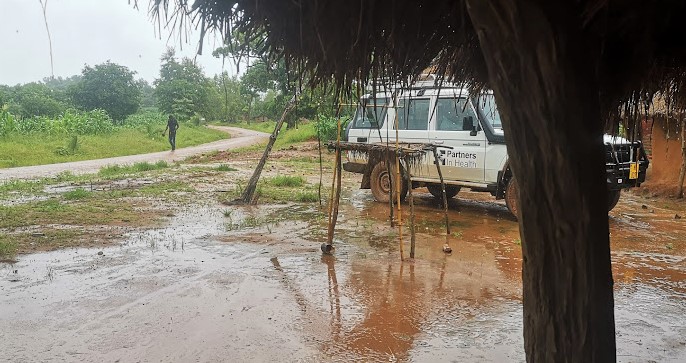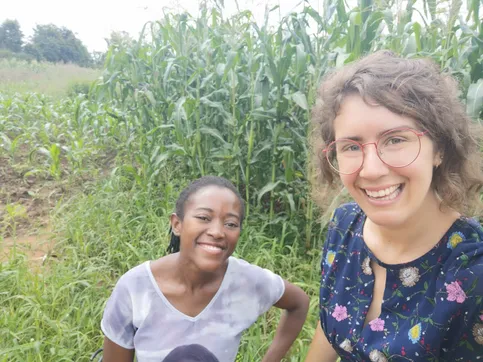Meet Maartje Kletter
We have been in touch with Maartje Kletter, as part of the National Institute for Health Research (NIHR) Women in Science Campaign, to see what inspired Maartje to start her career in science and health research. Maartje is one of our third year PhD students on our NIHR Global Health Research Unit on Improving Health in Slums.
Here Maartje shares her thoughts and research so far: 
"For my research project I have been inspired by Dr. Adrian Plunkett and Dr. Emma Plunkett, the founders of the Learning from Excellence (LfE) programme, as well as by all the health professionals among my friends and family. We have seen in the past year how important frontline health workers are and how
difficult their jobs can be. Programmes that allow health workers
to identify excellence, report excellence and learn from the excellent events are such a nice antidote to the daily focus on not doing anything wrong. The focus on excellence was such an eye-opener, and I have been hooked ever since the first time I heard of it. It’s such a positive programme to work with and everyone is very grateful for the opportunity to provide not only positive feedback,
but also to identify these excellence events and looking into how more of this can be done.
We performed an exploratory evaluation in 2018 and identified the potential of LfE to improve morale and relationships among colleagues in UK hospitals, but we thought that LfE would not only be useful for those working in UK hospital trusts, but for health workers in any setting!
In this research project I collaborate with Partners in Health in Malawi and together with stakeholders we have co-designed the LfE project for Community Health Workers. These are voluntary workers who have an important role in linking community members to care. We hoped that the LfE project would identify stories of excellence and what can be learnt from these, and act as a non-financial incentive for the community health workers."
Maartje tells us about some challenges faced and how these were overcome:
"One of the barriers experienced in implementation of the LfE programme was that not everyone was convinced that this programme could impact health workers and their performance and one of the aspects of this research is refining a theory explaining how LfE could impact health workers, and which factors act as barriers and facilitators in this process. As I’ve been interested in how or why things work from a very young age this kind of research fits well with me and my interests and I hope the theory will support others who would like to implement a project like LfE for identifying factors that can support or prevent the outcomes aimed for."


The fieldwork was all conducted in Neno, a mountainous and impoverished district in Southern Malawi. Maartje, along with a translator performed some observational studies looking into the everyday tasks of community health workers.
"Due to the pandemic I have been unable to 
travel to Malawi since this study, but with support from the amazing team on the ground, and a research assistant in particular, we have been able to roll out the intervention the entire district and collect the reports as well as data about the impact of the project, which was collected with the
help of both quantitative and qualitative methodology. In the first three months of the project community health workers submitted 576 reports! We are currently busy following up some of these to identify stories of impact
as well as how we can learn from these."
To find out more about Maartje's research, click here.
25 February, 2021
